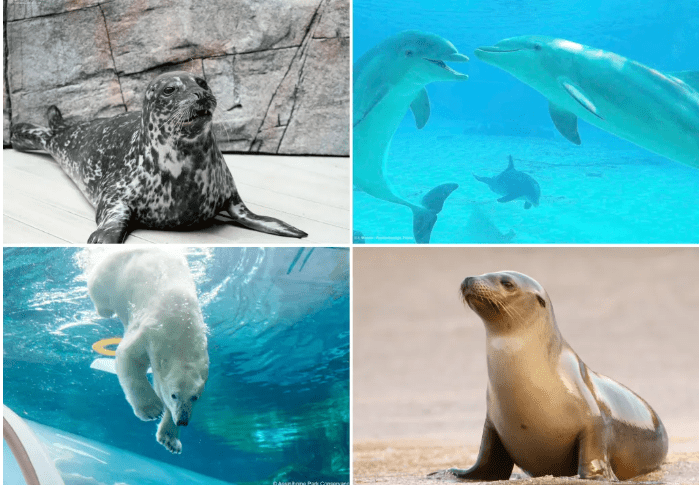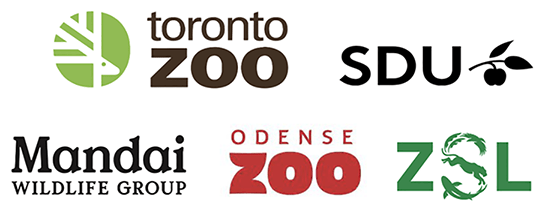A study led by the Species360 Conservation Science Alliance science team found that marine mammals in modern zoos and aquariums are living longer as a result of advances in medicine and care.
A new study finds that four species of marine mammals are living longer in zoological institutions than in the past, a change that is believed to be the result of advances in animal care practices centered on animal welfare. The study, led by Species360 and University of Southern Denmark Research Scientist Dr. Morgane Tidière in collaboration with 41 co-authors from academic, governmental, and zoological institutions around the world, is the first to examine life expectancy and lifespan equality together as a proxy of population welfare in marine mammal species.
The study also found that marine mammal species live up to three times longer in zoological institutions than in the wild. The results have been published in Proceedings of the Royal Society B: Biological Sciences.
Study authors used the same statistical methods used to assess improvements in human population welfare to analyze data from the world’s largest database of information on wildlife in human care – the Species360 Zoological Information Management System (ZIMS).
The study examined 200 years of data from ZIMS, dating as far back as the early 1800s up until 2020, to look at whether four marine mammal species – the harbor seal, California sea lion, polar bear, and common bottlenose dolphin – have seen improved conditions of life in human care, and whether that can be observed through a progressive concentration of individuals reaching old age.
Applying the same methodology using additional data sources for wild populations, the authors examine whether these four marine mammal species are living longer lives in zoos and aquariums, compared to their counterparts in the wild.

Increases in life expectancy and equality
The study authors found that the life expectancy of the four marine mammal species has increased three-fold, and that the rate of deaths in the first year of life has declined by up to 31% over the last century in zoos and aquariums included in the study. Additionally, the life expectancy of these species in zoos and aquariums is currently two to three times longer than their counterparts in the wild.
In addition to looking at how long these four species are living, researchers looked at how many of them are living well by examining lifespan equality, which can show if a population is consistently living longer lives and avoiding less predictable, earlier causes of death. Researchers found conclusively that the four species have a progressively increasing lifespan equality across time in zoological institutions. They also highlight that current populations of the four species living in zoological institutions have a higher lifespan equality than their counterparts in the wild.
Our findings indicate that significant progress has been made in enhancing the welfare of marine mammals in zoological institutions, as a result of improvements in management practices in progressive zoos and aquariums. Professional zoos and aquariums of today cannot be compared to zoos 30 years ago.” Dr. Tidière continues: “This kind of research is possible as a result of the standardized data collected and shared by Species360 member zoos and aquariums around the world. – Lead study author, Dr. Morgane Tidière, Species360
Zoo and Aquarium Advances
The researchers found a significant improvement in longevity and lifespan equality for the four species from the 1990s onwards, which is believed to be a result of advancements in zoological practices, such as implementing advanced veterinary, environmental, nutritional and enrichment measures, as well as the voluntary cooperation of animals in routine examinations through positive reinforcement training.
These improvements in how progressive zoos and aquariums care for animals are a result of the establishment of regional and national zoo associations, accreditation standards, coordinated breeding programs, shared databases and professional networks which foster knowledge sharing – thereby collectively improving animal welfare.
The study authors note that these results reflect the average welfare of marine mammals in Species360 member facilities, rather than demonstrating a global minimum standard achieved by all zoos and aquariums worldwide. Nonetheless, these findings serve as evidence of positive progress in the management and care of animals within leading zoological facilities. The researchers hope the findings inspire other institutions, which are not part of professional zoo and aquarium bodies, to invest time and resources into enhancing their animal management practices.
The results of this study contribute to the ongoing dialogue surrounding the wellbeing of animals in zoos and aquariums and may help inform future policy decisions. It demonstrates the importance of scientific research in understanding and improving the lives of animals in zoological institutions. The preliminary results have already informed legislative decisions in France and Spain, guiding evidence-based choices regarding the care of marine mammals in these settings.
Read the full study here: https://royalsocietypublishing.org/doi/10.1098/rspb.2023.1895.
If you would like to know more about accessing aggregated and anonymised demographic and veterinary medical data to further your research efforts, please take a look at the Species360 Insights page, for more information







